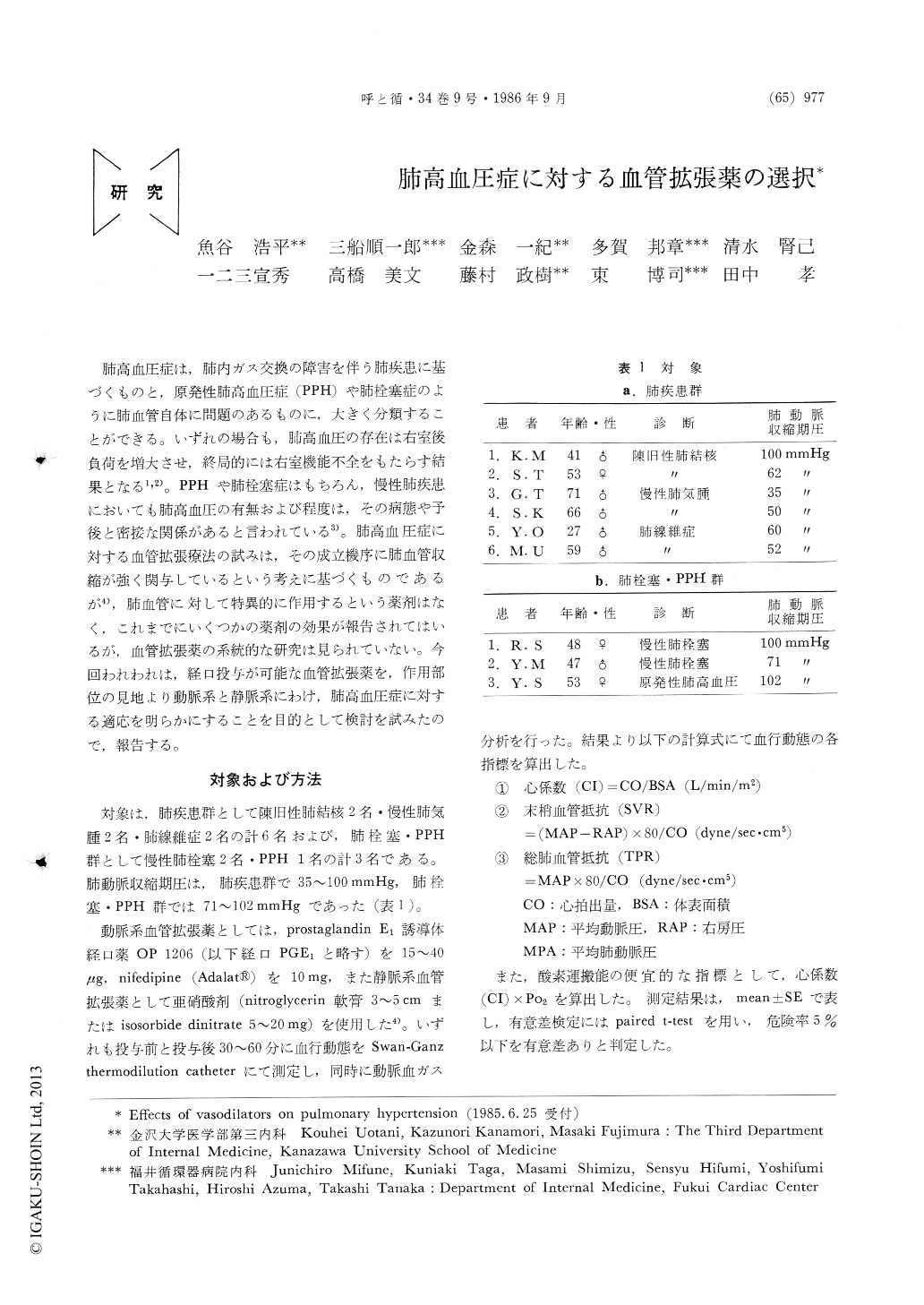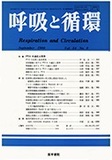Japanese
English
- 有料閲覧
- Abstract 文献概要
- 1ページ目 Look Inside
肺高血圧症は,肺内ガス交換の障害を伴う肺疾患に基づくものと,原発性肺高血圧症(PPH)や肺栓塞症のように肺血管自体に問題のあるものに,大きく分類することができる。いずれの場合も,肺高血圧の存在は右室後負荷を増大させ,終局的には右室機能不全をもたらす結果となる1,2)。PPHや肺栓塞症はもちろん,慢性肺疾患においても肺高血圧の有無および程度は,その病態や予後と密接な関係があると言われている3)。肺高血圧症に対する血管拡張療法の試みは,その成立機序に肺血管収縮が強く関与しているという考えに基づくものであるが4),肺血管に対して特異的に作用するという薬剤はなく,これまでにいくつかの薬剤の効果が報告されてはいるが,血管拡張薬の系統的な研究は見られていない。今回われわれは,経口投与が可能な血管拡張薬を,作用部位の見地より動脈系と静脈系にわけ,肺高血圧症に対する適応を明らかにすることを目的として検討を試みたので,報告する。
Three different vasodilating drugs were evaluated for the treatment of pulmonary hypertension. The drugs used were an oral prostaglandin E1 delivative (OP 1206) and nifedipine which act as arterial vasodilators, and nitrates as venous vasodilators. The effects of these vasodilators were investigated in nine patients with pulmonary hypertension by monitoring blood gas analy-sis and hemodynamic changes before and after the administration of these drugs. Six among those nine patients had secondary pulmonary hypertension due to chronic lung disease, 2 due to chronic pulmonary embo-lism and 1 had primary pulmonary hypertension.
Both of arterial vasodilators, OP 1206 and nifedipine, significantly reduced pulmonary vascular resistance and pulmonary arterial pressure with increase in or without decrease in cardiac output and oxygen delivery after the administration of the drugs. In contrast, nitrates failed to reduce pulmonary vascular resistance while the cardiac output and oxygen delivery were markedly reduced. These observations suggest that the arterial vasodilators are indicated for all types of pulmonary hypertension whereas the venous vasodilators are inade-quate.

Copyright © 1986, Igaku-Shoin Ltd. All rights reserved.


